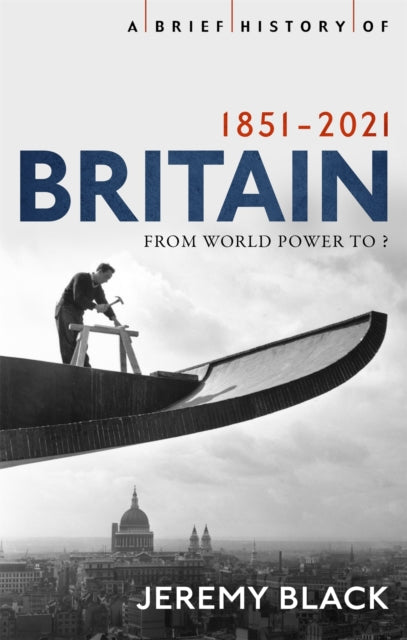A Brief History of Britain 1851-2021 : From World Power to ?
Usually shipped within 24 hours
UK deliveries from £5.95
Taxes and duties displayed at checkout
Delivery & Returns
Delivery & Returns
We use the Royal Mail, DHL Express or UPS for our customers. For UK addresses, deliveries under 10kg are a standard £4.95 via Royal Mail Tracked 48 Service. For orders over 10kg and overseas customers, postage is calculated for you at checkout once you have entered your postal address. This price, does not include any potential custom charges that may apply, depending on the product or destination, as every country has very different import duties / taxes. Online exclusive products (such as trainers) will be delivered to you directly from the printer, separate from other items in your order, but your postage fee covers ALL items in your order.
If you are unhappy with your purchase, please email shop@tankmuseum.org within fourteen (14) working days of receiving your goods, and return it to us at the address below, in its original condition, unopened (with any seals and shrink-wrap intact) and we will issue you a full refund or replace it. Goods must be returned at your own cost. If the item is faulty, you do not need to return it, we will send you a replacement free of charge.
Description
Description
By Jeremy Black
Paperback
From the Great Exhibition's showcasing of British national achievement in 1851 to the opening ceremonies of the Olympics in Stratford in 2012 and on to Brexit, an insightful exploration of the transformation of modern Britain
This revised and updated fourth and final volume in the concise Brief History of Britain series begins in the specially-constructed Crystal Palace, three times the length of St Paul's Cathedral, in Hyde Park at the beginning of the second half of the nineteenth century. The Great Exhibition it housed marked a high point of British national achievement, at the forefront of the Industrial Revolution, at the heart of a great empire, with Queen Victoria still to reign for fifty years. It was a time of confidence in the future, and exuberant patriotism for Britain's role in it.
The beginning of the Second World War in 1939 marks a turning point because of the great change it heralded in Britain's global standing. At its peak, protected by the world's greatest navy, the British Empire stretched from Australasia to Canada, from Hong Kong and India to South Africa, and from Jamaica to the Falklands. Now the empire is no more: a fundamental change not only for the world, but also for Britain.
The Second World War had been won, but it had exhausted Britain and marked the beginning of its national decline. Black links cultural and political developments closely - transport, health, migration and economic and demographic factors - in order to make clear how porous and changeable the manifestations of national civilisation can be, and to make sense of themes such as the triumph of town over country, Britain's international clout and the shift from the dominance of the market at the turn of the nineteenth century to the growing significance of the state. Importantly, he also looks at how public history has presented the nation's past, and how the changing and different ways we look at that past are central aspects of our shared history.









